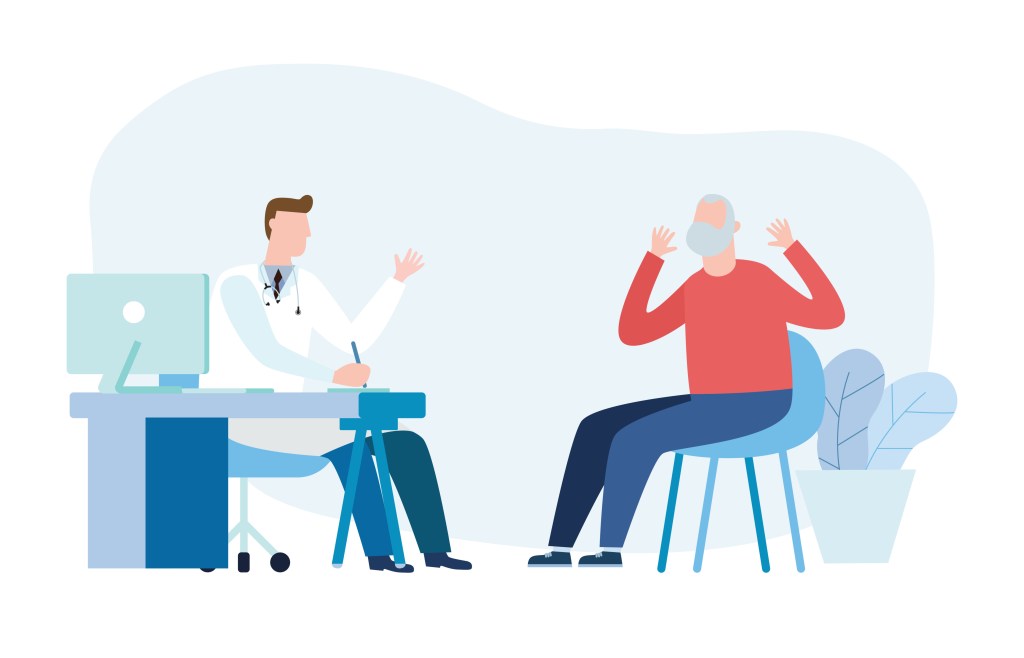
On January 6, 2023, the FDA approved Leqembi, the first drug shown to slow Alzheimer’s. Leqembi (Lecanemab) is manufactured by the Japanese drugmaker Eisai and co-developed by Eisai and Biogen. The drug is for patients with mild or early-stage Alzheimer’s dementia.
How does it work?
Lecanemab is an antibody that removes sticky deposits of the protein amyloid beta from the brain. Leqembi (the brand name in the US) neutralizes the protein and marks it for clearance by the immune system before clumping occurs. The result is fewer beta-amyloid aggregates, or plaques, in the brain, potentially slowing the progress of the disease. Results from a late-stage study showed that the drug reduces the rate of cognitive decline in patients with early Alzheimer’s by 27%.
How is it given?
Leqembi is administered intravenously once every two weeks to patients who have a diagnosis of early or mild Alzheimer’s. During the first 14 weeks of taking the drug, patients must be closely monitored and get brain scans to make sure there is no brain swelling.
What are the risks?
Cerebral edema, also called ARIA-E, is the main risk. It involves the breakdown of the tight endothelial junctions of the blood-brain barrier and results in the accumulation of fluid in the brain. In general, common side effects of ARIA-E include easy bruising/bleeding, numbness/tingling of the hands/feet, unsteadiness, unexplained muscle weakness, vision changes, muscle joint pain, butterfly-shaped rash on the nose and cheeks, symptoms of heart failure (including shortness of breath, swelling ankles/feet, and unusual tiredness. Patients who have chest pain or seizures should get medical help immediately.
Biogen has issued these warnings and precautions: Leqembi can cause amyloid-related imaging abnormalities-edema (ARIA-E) and -hemosiderin deposition (ARIA-H). ARIA-E can be observed with MRI imaging as brain edema or sulcal effusions, and ARIA-H as microhemorrhage and superficial siderosis. ARIA is usually asymptomatic, although serious and life-threatening events, can occur including seizures. They are rare, however.
Reported symptoms associated with ARIA may include headache, confusion, visual changes, dizziness, nausea, and gait difficulty. Focal neurologic deficits may also occur. Symptoms associated with ARIA usually resolve over time.
In one study listed on Biogen’s news release (although it doesn’t say how many patients were treated) 3% of the patients who took the drug had symptomatic ARIA. It resolved itself in 80% of those patients. One patient had a brain hemorrhage after one treatment with the drug. https://investors.biogen.com/news-releases/news-release-details/fda-approves-leqembitm-lecanemab-irmb-under-accelerated-approval
The majority of ARIA-E radiographic events occurred early in treatment (within the first 7 doses), although ARIA can occur at any time and patients can have more than one episode. Other studies have reported that patients taking Leqembi who had brain hemorrhages died. This information is on the Biogen news release, also. https://investors.biogen.com/news-releases/news-release-details/fda-approves-leqembitm-lecanemab-irmb-under-accelerated-approval
Patients who have had a cerebral hemorrhage, aneurysm, brain lesions, stroke, brain contusion, or other brain and vascular pathologies are advised to not take the drug because there is a risk of a brain hemorrhage. Most doctors would not administer the drug in any of these cases.
How much does Leqembi cost?
A year’s treatment will cost about $26,500. Currently, there are few options outside of self-pay. Most of the patients who are potential candidates for the drug are on Medicare, and the Federal program’s coverage is very limited, so far. Patients who can pay out of pocket will be able to start the treatment if they are a good candidate for Leqembi and are able to find a doctor and health care system to work with.
So far, Soleo Health is the sole specialty pharmacy distributor for Leqembi. Soleo Health will distribute Leqembi to provider offices and infusion centers, and administer it across the company’s ambulatory infusion centers nationwide, including those operated by its provider division, Virtis Health. This division offers therapeutic and diagnostic services to people with complex diseases requiring special management.
The company reported that it operates more than 40 infusion centers across the U.S.
Patients treated with Leqembi also can receive support through Soleo Health’s Alzheimer’s disease Therapeutic Care Management Center, or TCMC, whose interdisciplinary staff includes physician specialists, nurse practitioners, registered nurses, therapy-care pharmacists, reimbursement specialists, and patient care ambassadors. The center is supported by the company’s nationwide specialty pharmacies, Soleo Health stated.
More information on Soleo Health’s services for Leqembi and Alzheimer’s disease is available by contacting its Alzheimer’s TCMC at 844-960-9090 or via email at alzheimers@soleohealth.com.
Is it worth the risk?
This is a tough question. If I were in the position of deciding whether to put my loved one on Leqembi I’d have to think long and hard if the risk of their having a brain bleed and possible hemorrhage is worth the possibility of living six months, nine months, or a year or two longer without dementia. On the other hand, it’s too early to know just how beneficial the drug will be. I’d probably not be first in line and would wait a bit to see how much Leqembi is helping and whether Medicare is going to cover at least part of the cost.
Maybe Leqembi will turn out to be the silver bullet we’ve been waiting for, and will totally clear out the amyloid plaques. Now wouldn’t that be fantastic?!
Barbra Cohn cared for her husband Morris for 10 years. He passed away from younger-onset Alzheimer’s disease in 2010. Afterward, she was compelled to write “Calmer Waters: The Caregiver’s Journey Through Alzheimer’s & Dementia”–winner of the 2018 Book Excellence Award in self-help– in order to help other caregivers feel healthier and happier, have more energy, sleep better, feel more confident, deal with feelings of guilt and grief, and to ultimately experience inner peace. “Calmer Waters” is available at Amazon, Barnes & Noble, Boulder Book Store, Tattered Cover Book Store, Indie Bound.org, and many other fine independent bookstores, as well as public libraries.









 It’s hot outside and it’s easy to get dehydrated. Our body is 50-65% water. The brain, which is 70% water, gets dehydrated just like your body. When it is dehydrated, neurotransmission—which is heavily dependent on water—is impaired, resulting in poor memory, concentration and impaired abstract thinking.
It’s hot outside and it’s easy to get dehydrated. Our body is 50-65% water. The brain, which is 70% water, gets dehydrated just like your body. When it is dehydrated, neurotransmission—which is heavily dependent on water—is impaired, resulting in poor memory, concentration and impaired abstract thinking. My husband passed away eight years ago from younger-onset Alzheimer’s. Recreational marijuana is now legal in Colorado, but before medical marijuana was legal I’d find a way to obtain it for him to smoke or eat in cookies and brownies. It calmed him down and made him happy. It reduced his anxiety, but it definitely did not help his memory. And that’s not what I was looking for. I just wanted him to feel calmer, and in so doing, it helped me feel more at ease. (Please read
My husband passed away eight years ago from younger-onset Alzheimer’s. Recreational marijuana is now legal in Colorado, but before medical marijuana was legal I’d find a way to obtain it for him to smoke or eat in cookies and brownies. It calmed him down and made him happy. It reduced his anxiety, but it definitely did not help his memory. And that’s not what I was looking for. I just wanted him to feel calmer, and in so doing, it helped me feel more at ease. (Please read 
 A new study links the increased risk of dementia with certain medications. (
A new study links the increased risk of dementia with certain medications. ( Depression can affect our memory, and it can result from not being able to do the things that were once easy for us, as in the case of Alzheimer’s or dementia. Depression can result from a number of factors and it often appears differently in different people
Depression can affect our memory, and it can result from not being able to do the things that were once easy for us, as in the case of Alzheimer’s or dementia. Depression can result from a number of factors and it often appears differently in different people